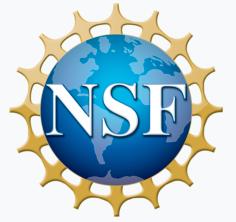
Exciting news - the newest ATE program solicitation is now available from the National Science Foundation! As most of us in the ATE community are well aware, the ATE program emphasizes the education of technicians for the high-technology fields that drive our nation’s economy, with special emphasis on two-year higher education institutions. Through partnerships among academic institutions and industry, ATE promotes improvement in the education of science and engineering technicians, including curriculum development, professional development, career pathways, and other activities.
The focus of the new solicitation is the same as it’s been in years past in that it provides funds to advance the knowledge base related to technician education. Projects and centers are expected to be faculty-driven and incorporate credit-bearing courses and programs, although materials developed through the program may also be used for incumbent worker education.
According to Dr. Celeste Carter, ATE’s Lead Program Director, “This new solicitation further strengthens the role of community and technical colleges in the ATE program and in the education of the skilled technical workforce.”
In this cycle, an estimated 45 to 80 standard and continuing grants will be made totaling approximately $75 million for 2022. Grants may be awarded in a wide variety of sizes and durations. The actual number of awards and sizes are subject to the availability of funds and quality of proposals.
The 2021 program solicitation makes some important updates and revisions. These include:
- Track 1: Small Projects for Institutions New to the ATE program has a maximum budget of $350,000 over three years (previously it was $300,000).
- Track 2: ATE Projects has a maximum budget of $650,000 over three years (previously it was $600,000).
- ATE-Coordination Network projects are no longer supported.
- A new track, Track 3, entitled “Consortia for Innovations in Technician Education” has been added with a maximum budget range of $1,200,000 - $3,000,000 depending on the number of institutions involved.
- Track 5: Targeted Research on Technician Education has been renamed Applied Research on Technician Education, and additional information has been added.
- Developers are strongly encouraged to use an open licensing approach for any new learning materials and computer software source code when these materials are developed as a component of the proposed project.
As per the new solicitation, the ATE program now supports proposals in five major tracks: Small Projects for Institutions New to ATE, Projects, Consortia for Innovations in Technician Education, Centers, and Applied Research on Technician Education. Proposals in all tracks should demonstrate a thorough awareness of previous relevant ATE grants, research on effective technician education, and contemporary developments in the relevant field(s) of technology. Whenever feasible, projects should utilize and innovatively build upon successful educational materials, courses, curricula, strategies, and methods that have been developed through other ATE grants, as well as other exemplary resources that can be adapted to technological education.
The full proposal must include a project description (limited to 15 pages) that explains the project's motivating rationale, goals, objectives, deliverables, and activities; the timetable; the management plan; the roles and responsibilities of the PI, co-PI(s), and other senior personnel; the plan for sustainability after the period of NSF funding; the evaluation plan; and the dissemination plan. Proposers must also include references and an aggregate narrative description of the internal and external resources that the organizations and its collaborators will provide should the project be funded.
Proposers have three options for submission of the full proposal: FastLane, Research.gov, or Grants.gov. Be sure to read the technical requirements for how to submit through each of these methods. The submission deadline is October 14, 2021 at 5 p.m. local time.
Proposals are evaluated based on two National Science Board merit review criteria: the potential to advance knowledge (intellectual merit) and the potential to benefit society and contribute to the achievement of specific, desired societal outcomes (broader impacts). Broader impacts may be accomplished through the research itself, through activities directly related to specific research projects, or through complementary activities.
Questions about the ATE solicitation can be directed to V. Celeste Carter, Lead Program Director, or Pushpa Ramakrishna. For detailed information about preparing and submitting proposals, read the full Program Solicitation NSF 21-598. Proposers are also encouraged to read prior awards from the NSF database and take advantage of ATE Central’s resources on outreach, deliverables, evaluation, or explore the ATE Central site to learn more about the ATE community, ATE funded projects and centers, and the deliverables they create.

 Subscribe
Subscribe


 See More ATE Impacts
See More ATE Impacts

Comments
There are no comments yet for this entry. Please Log In to post one.